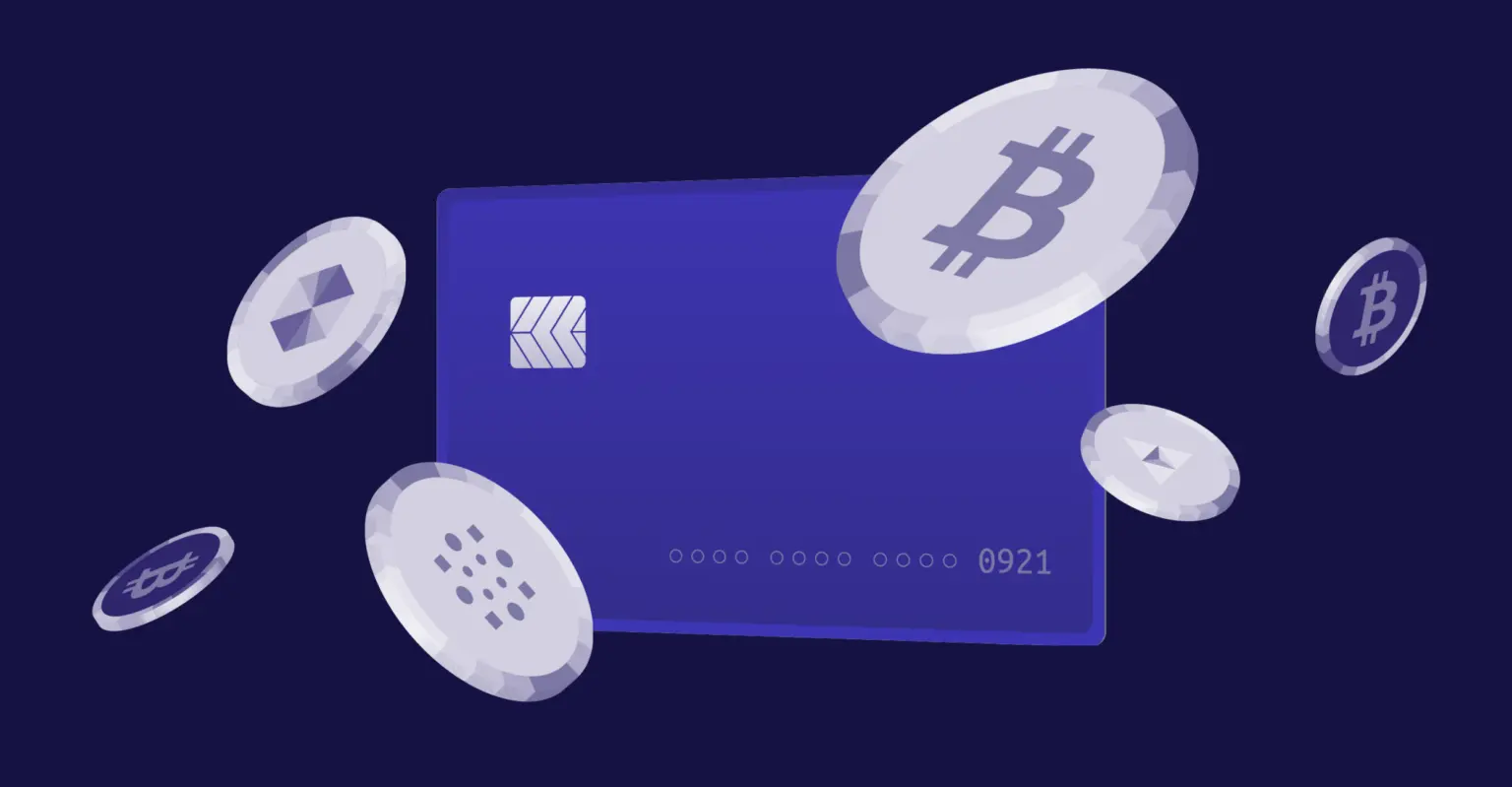Financial Sovereignty: Achieving Independence Through DeFi

Financial sovereignty through DeFi means controlling your own money without intermediaries, achieved through self-custody, decentralized protocols, and programmable money that operates 24/7 globally.
Your bank can freeze your account at any time. Your government can devalue your currency overnight. Your payment processor can block your transactions without explanation. This isn't paranoia - it's reality for millions of people worldwide.
True financial sovereignty means having complete control over your money without depending on the permission or cooperation of third parties. It means your wealth can't be confiscated, frozen, or devalued by authorities or institutions.
Traditional finance makes this impossible. Every transaction requires intermediaries, every account can be monitored or frozen, and every currency can be manipulated by central authorities. You don't really own your money - you have permission to use it under terms that can change without notice.
DeFi changes this equation fundamentally. For the first time in history, individuals can achieve genuine financial sovereignty through decentralized protocols that operate autonomously without human control or intervention.
This isn't about avoiding taxes or breaking laws - it's about building financial resilience that doesn't depend entirely on institutional goodwill and political stability.
After learning about digital asset allocation and crypto portfolio strategies, achieving financial sovereignty becomes the ultimate expression of cryptocurrency's revolutionary potential.
Understanding Financial Sovereignty
Financial sovereignty represents the ability to control your wealth completely without dependence on traditional financial intermediaries or government institutions.
Definition and Core Principles
Complete Asset Control: True ownership means controlling private keys and having direct access to assets without requiring permission from third parties.
Censorship Resistance: The ability to send, receive, and store value without possibility of interference from governments, banks, or other authorities.
Global Accessibility: Access to financial services 24/7 from anywhere in the world without geographic restrictions or regulatory barriers.
Programmable Money: Using smart contracts and protocols that execute automatically according to predetermined rules without human intervention.
Privacy Protection: Maintaining financial privacy through pseudonymous transactions and selective disclosure rather than complete financial transparency to authorities.
Traditional Finance Limitations
Intermediary Dependence: Every traditional financial transaction requires trusted intermediaries who can deny service, freeze assets, or impose restrictions.
Geographic Restrictions: Traditional financial services are limited by jurisdiction, requiring different relationships and compliance in each country.
Business Hours Constraints: Banks and traditional financial services operate on limited schedules, creating delays and accessibility issues.
Account Closure Risk: Financial institutions can close accounts, freeze assets, or deny services based on internal policies or regulatory pressure.
Currency Devaluation: Central banks can devalue currencies through monetary policy, eroding purchasing power without consent.
DeFi's Sovereignty Advantages
Permissionless Access: DeFi protocols operate without requiring identity verification, credit checks, or approval from central authorities.
Non-Custodial Control: Users maintain control of private keys and assets while accessing sophisticated financial services.
Global Operation: DeFi protocols work identically worldwide without geographic restrictions or varying regulations.
Autonomous Execution: Smart contracts execute automatically according to code rather than human discretion or institutional policies.
Monetary Policy Immunity: Decentralized assets operate independently of central bank monetary policy and currency manipulation.
Building Blocks of Financial Independence
Achieving financial sovereignty requires understanding and implementing the fundamental components that enable true financial independence.
Self-Custody and Private Key Control
Hardware Wallet Security: Use hardware wallets to store private keys offline, ensuring complete control over assets without third-party custody risks.
Seed Phrase Management: Securely store and back up wallet seed phrases using multiple methods and locations to prevent loss while maintaining security.
Multi-Signature Implementation: Use multi-signature wallets for larger amounts to distribute control while maintaining security and reducing single points of failure.
Key Rotation Practices: Regularly generate new addresses and rotate keys to maintain privacy and security over time.
Inheritance Planning: Develop secure methods for transferring private key control to heirs without compromising current security.
Decentralized Protocol Usage
Smart Contract Interaction: Learn to interact directly with smart contracts rather than relying on centralized interfaces that could be blocked or restricted.
Protocol Selection: Choose protocols with strong decentralization, no admin keys, and immutable smart contracts that can't be changed or censored.
Direct Blockchain Access: Maintain ability to access blockchain networks directly through full nodes or reliable RPC endpoints.
Backup Interface Access: Identify multiple ways to access protocols in case primary interfaces become unavailable.
Protocol Governance: Participate in governance to influence protocol direction and maintain decentralization over time.
Non-Custodial Service Preference
Decentralized Exchange Usage: Use DEXs for trading to maintain asset custody and avoid KYC requirements that create tracking records.
Non-Custodial Lending: Participate in lending protocols where you maintain control of assets through smart contracts rather than custodial services.
Self-Hosted Solutions: Run your own nodes, interfaces, and services where possible to reduce dependence on third-party infrastructure.
Open Source Preference: Prioritize open source tools and protocols that can be audited, verified, and operated independently.
Redundancy Planning: Develop backup methods for all services to ensure continued access during disruptions or restrictions.
DeFi Tools for Financial Sovereignty
Specific DeFi protocols and tools enable different aspects of financial sovereignty while maintaining user control and privacy.
Decentralized Exchanges (DEXs)
Uniswap and SushiSwap: Automated market makers that enable trading without KYC requirements or centralized control over assets.
Curve Finance: Specialized for stablecoin trading and yield strategies while maintaining non-custodial asset control.
1inch Protocol: DEX aggregator that finds optimal trading routes while maintaining decentralized execution.
Cross-Chain DEXs: Protocols like THORChain enable cross-chain trading without wrapped tokens or centralized bridges.
Privacy-Enhanced DEXs: Protocols incorporating privacy features like Tornado Cash integration for enhanced transaction privacy.
Self-Custodial Lending Protocols
Aave Protocol: Decentralized lending that enables borrowing and lending without custodial risk or KYC requirements.
Compound Finance: Algorithmic money markets that provide yield and borrowing capabilities through smart contracts.
MakerDAO: Decentralized stablecoin creation and lending protocol with governance token control.
Liquity Protocol: Immutable borrowing protocol with no governance risk and predictable parameters.
Alchemix: Self-repaying loans that use yield to automatically pay down debt over time.
Non-KYC Financial Services
Decentralized Insurance: Protocols like Nexus Mutual provide insurance coverage without traditional underwriting processes.
Anonymous Yield Farming: Participate in yield strategies without providing personal information or verification.
Peer-to-Peer Trading: Direct trading between individuals without centralized exchange intermediaries.
Prediction Markets: Decentralized betting and hedging through platforms like Polymarket and Augur.
Privacy Coins: Cryptocurrencies like Monero and Zcash that provide enhanced transaction privacy.
Creating Your Sovereign Financial Stack
Building financial sovereignty requires systematic implementation of tools and practices that maximize control while minimizing third-party dependencies.
Wallet Selection and Security
Hardware Wallet Primary: Use Ledger, Trezor, or similar hardware wallets as primary storage for significant amounts.
Mobile Hot Wallet: Maintain smaller amounts in mobile wallets like MetaMask or Trust Wallet for daily DeFi interactions.
Multi-Signature Setup: Implement 2-of-3 or 3-of-5 multi-signature wallets for larger holdings requiring enhanced security.
Air-Gapped Storage: Consider air-gapped computers for generating and storing private keys for maximum security.
Recovery Planning: Develop comprehensive recovery procedures for all wallet types and storage methods.
Protocol Diversification Strategy
Core Protocol Selection: Choose 5-10 proven protocols for primary financial activities including trading, lending, and yield generation.
Risk Distribution: Spread assets across multiple protocols to reduce single-protocol failure risk while maintaining sovereignty.
Backup Protocols: Identify alternative protocols for each function in case primary options become unavailable.
Cross-Chain Distribution: Use protocols across multiple blockchain networks to reduce single-network dependency.
Governance Participation: Actively participate in protocol governance to maintain decentralization and user control.
Privacy and Anonymity Considerations
Transaction Privacy: Use mixing services, privacy coins, and other tools to maintain transaction privacy where legal.
Identity Separation: Separate different financial activities across different addresses and identities.
VPN and Tor Usage: Access DeFi protocols through VPNs or Tor to maintain network-level privacy.
Metadata Protection: Minimize metadata leakage through careful selection of RPC endpoints and blockchain explorers.
Legal Compliance: Understand legal requirements for privacy tools and ensure compliance with applicable laws.
Income Generation Through DeFi
Financial sovereignty requires sustainable income generation through decentralized protocols that operate independently of traditional employment or business structures.
Yield Farming for Cash Flow
Stablecoin Strategies: Generate steady income through stablecoin lending and yield farming with minimal price risk.
Blue-Chip Farming: Earn yield on Bitcoin and Ethereum through lending protocols and liquid staking derivatives.
Protocol Token Farming: Participate in token incentive programs while building positions in quality protocol tokens.
Automated Strategies: Use yield aggregators like Yearn Finance to optimize returns across multiple protocols automatically.
Risk-Adjusted Optimization: Balance yield potential with protocol risks to create sustainable income streams.
Liquidity Provision Income
Stablecoin LP Positions: Provide liquidity to stablecoin pairs for steady trading fee income with minimal impermanent loss.
Major Pair LPs: Earn fees from ETH/BTC and other major trading pairs while maintaining exposure to quality assets.
Protocol Token LPs: Provide liquidity for protocol tokens you're accumulating to earn additional yield on holdings.
Concentrated Liquidity: Use Uniswap V3 concentrated liquidity features to maximize capital efficiency and returns.
Cross-Chain Opportunities: Provide liquidity on multiple blockchain networks to capture diverse yield opportunities.
Protocol Governance Rewards
Governance Token Accumulation: Build positions in governance tokens that provide ongoing rewards and protocol fee sharing.
Active Participation: Vote on governance proposals and participate in protocol decision-making to earn additional rewards.
Delegation Services: Delegate voting power to earn rewards while maintaining token ownership and control.
Revenue Sharing: Focus on protocols that share revenue with token holders rather than purely governance tokens.
Long-Term Value Creation: Participate in governance to support protocol development and long-term value creation.
Risk Management in Sovereign Finance
Financial sovereignty requires sophisticated risk management that doesn't rely on traditional insurance or regulatory protections.
Smart Contract Risk Mitigation
Audit Verification: Only use protocols with multiple security audits from reputable firms and proven track records.
Code Analysis: Understand smart contract functionality and risks rather than trusting third-party assessments.
Bug Bounty Programs: Prefer protocols with active bug bounty programs that incentivize security research.
Gradual Scaling: Start with small amounts and gradually increase exposure as protocols prove themselves over time.
Exit Planning: Maintain clear exit criteria and procedures for all protocol interactions.
Protocol Diversification
Multi-Protocol Strategy: Spread risks across multiple protocols rather than concentrating in single platforms.
Category Diversification: Use protocols across different categories (lending, DEX, derivatives) to reduce correlation risk.
Development Team Diversity: Avoid over-concentration in protocols from single development teams or organizations.
Blockchain Diversification: Distribute protocol usage across multiple blockchain networks.
Maturity Balancing: Balance newer protocols with higher yields against established protocols with proven security.
Emergency Fund Strategies
Liquid Reserve Maintenance: Keep 6-12 months of expenses in easily accessible stablecoins or traditional savings.
Multi-Asset Emergency Funds: Diversify emergency funds across stablecoins, Bitcoin, and traditional assets for maximum flexibility.
Geographic Distribution: Maintain emergency funds across multiple jurisdictions and access methods.
Rapid Access Planning: Ensure ability to quickly access emergency funds without complex procedures or intermediaries.
Stress Testing: Regularly test emergency fund access and conversion procedures.
Legal and Regulatory Considerations
Financial sovereignty must be pursued within legal frameworks while maintaining maximum permissible independence.
Tax Compliance: Understand and comply with tax obligations for DeFi activities while optimizing for privacy and efficiency.
Regulatory Monitoring: Stay informed about changing regulations that could affect DeFi usage and sovereignty strategies.
Legal Structure Optimization: Consider legal entities and structures that enhance privacy and protection while maintaining compliance.
Jurisdiction Planning: Understand how different jurisdictions treat DeFi activities and plan accordingly.
Professional Guidance: Work with crypto-experienced legal and tax professionals for complex situations.
Documentation Practices: Maintain appropriate records for compliance while protecting privacy where possible.
Transition Planning from Traditional Finance
Moving toward financial sovereignty requires careful transition planning that maintains financial stability while building independence.
Gradual Implementation: Transition slowly from traditional finance to DeFi sovereignty rather than making dramatic shifts immediately.
Dual System Operation: Maintain traditional financial relationships while building DeFi capabilities and confidence.
Skill Development: Invest time in learning DeFi protocols, security practices, and sovereignty tools before committing significant assets.
Infrastructure Building: Develop secure storage, backup procedures, and operational systems before scaling DeFi usage.
Risk Management: Start with small amounts and conservative strategies while learning sovereign finance practices.
Emergency Procedures: Develop procedures for accessing traditional finance during DeFi disruptions or emergencies.
Network Building: Connect with other sovereignty-minded individuals for knowledge sharing and support.
Continuous Learning: Stay current with DeFi developments, security practices, and regulatory changes affecting sovereignty.
Ready to achieve true financial sovereignty through DeFi? Decentralized Masters teaches the proven ABN System for building financial independence through decentralized protocols. Learn how sovereignty strategies integrate with portfolio management and wealth building for complete financial freedom and control.
Frequently Asked Questions
Should I keep any traditional finance relationships?
Most people benefit from maintaining some traditional finance relationships for specific services while building DeFi sovereignty.
How do I protect my family if something happens to me?
Develop secure inheritance procedures for private keys and educate family members about accessing and managing DeFi assets.
What happens if DeFi protocols get banned?
Well-designed protocols are difficult to ban completely due to decentralization, though access methods and interfaces might be restricted.
How do I maintain privacy while staying legally compliant?
Use privacy tools within legal frameworks, understand reporting requirements, and work with professionals for complex situations.
Can I completely replace traditional banking with DeFi?
Not completely yet - certain services like mortgages and business banking still require traditional finance, but DeFi can handle many functions.
What are the biggest risks of pursuing financial sovereignty?
Smart contract risks, user errors, regulatory changes, and the responsibility of managing your own security are primary concerns.
How much money do I need to achieve financial sovereignty?
Financial sovereignty is more about control than amount - you can start with small amounts and gradually build DeFi-based income streams.
Is financial sovereignty through DeFi legal?
Yes, using DeFi protocols is legal in most jurisdictions, though tax and regulatory compliance requirements vary by location.




